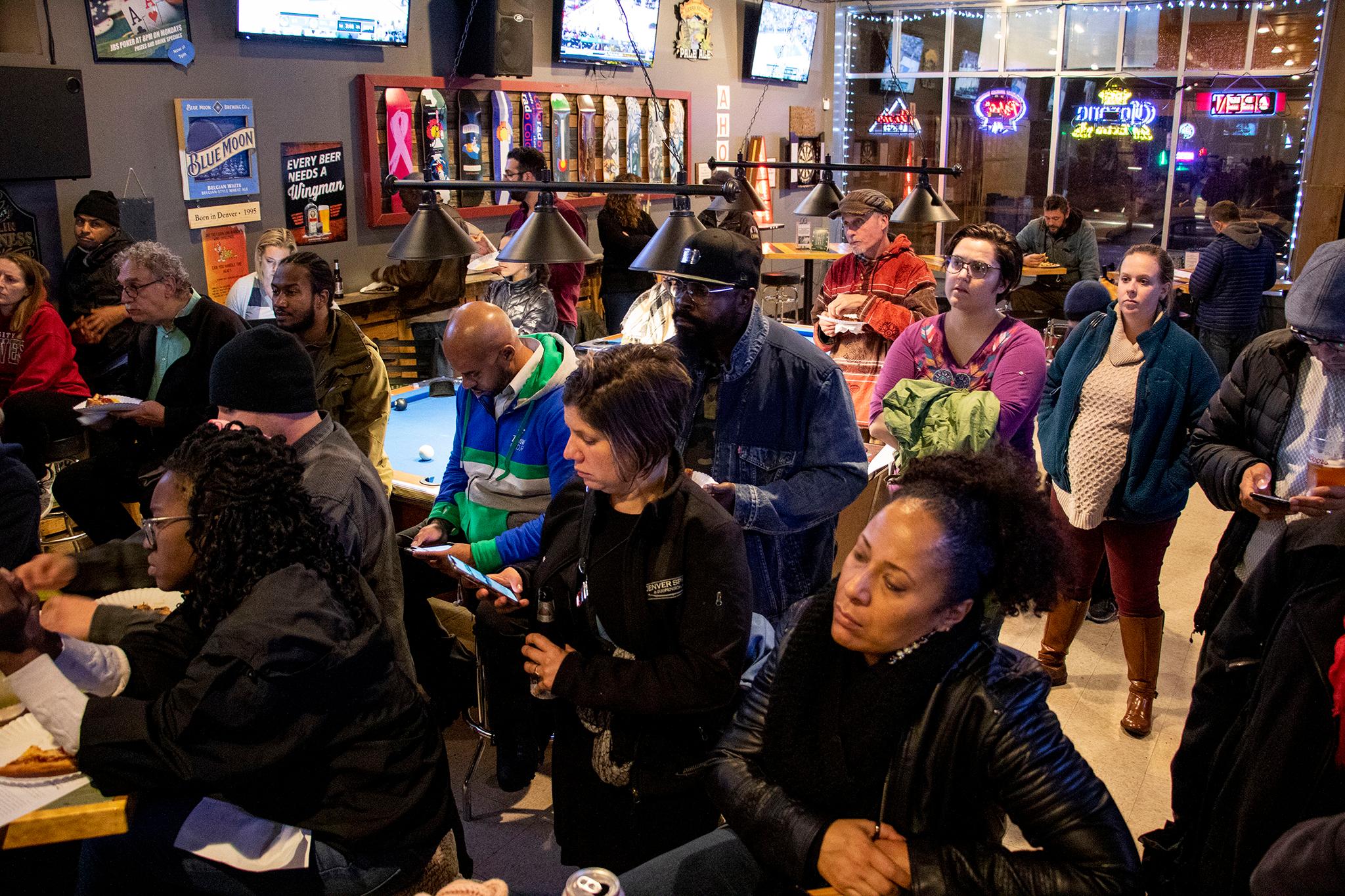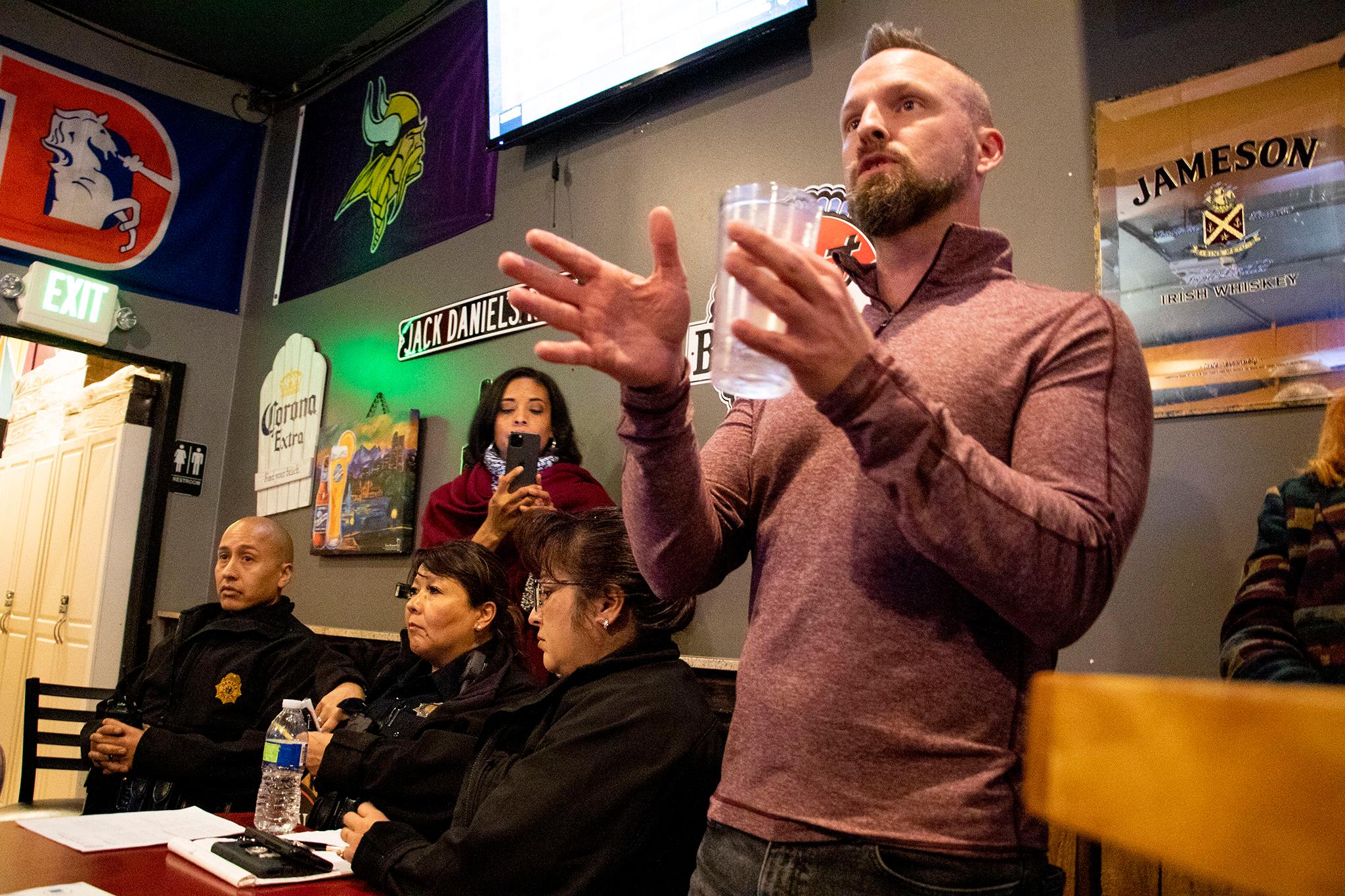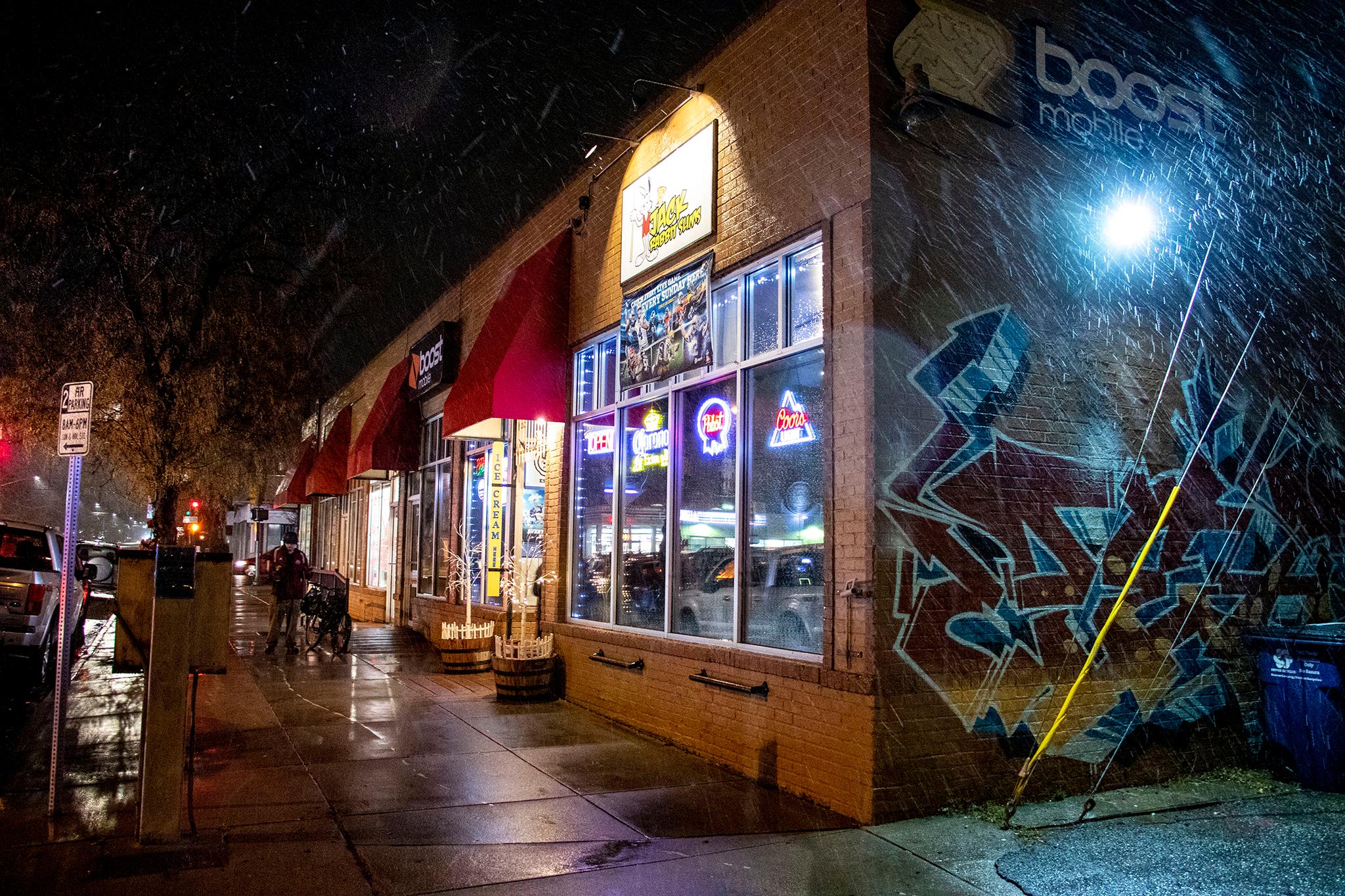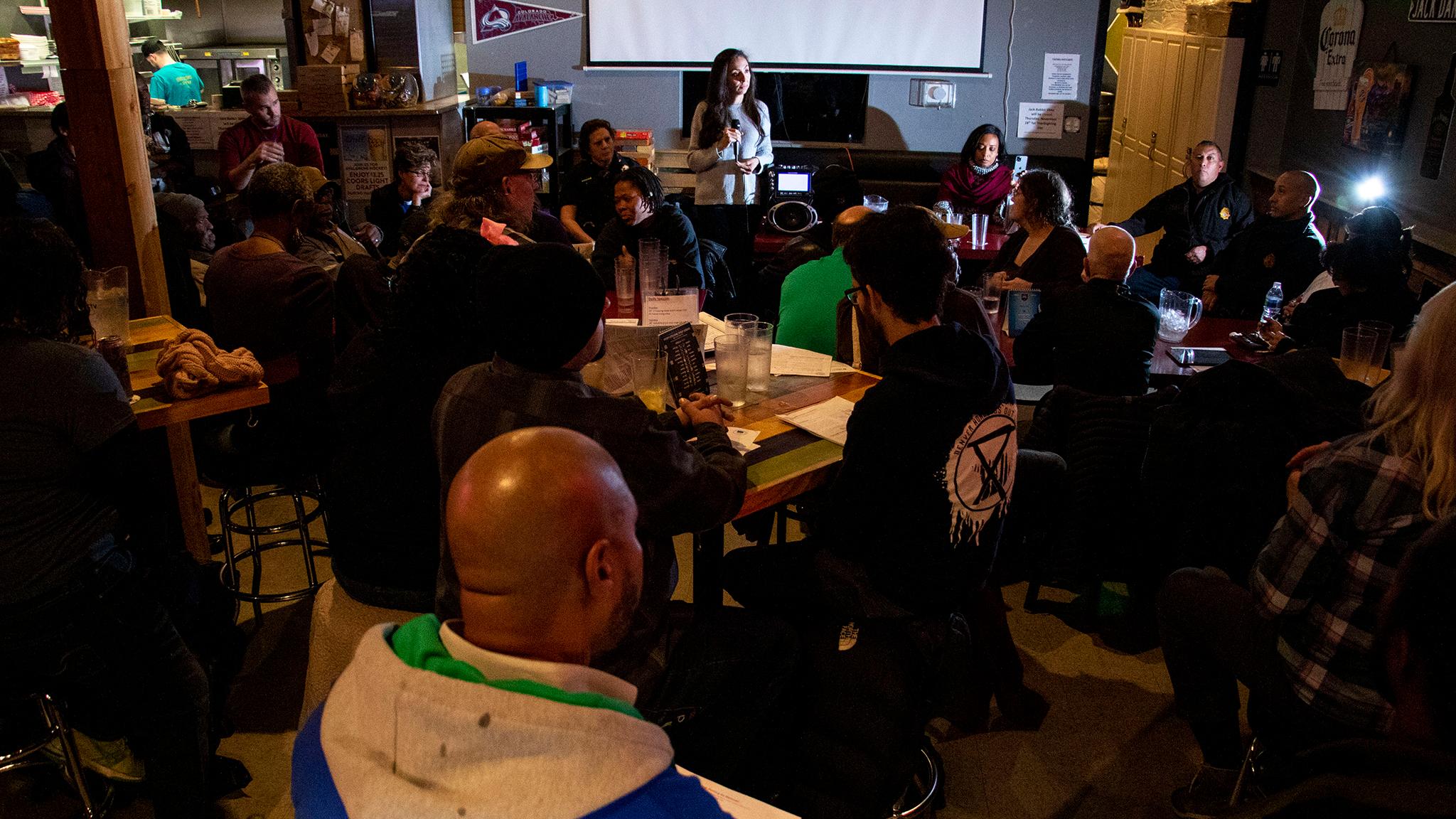City Councilwoman Candi CdeBaca wants to put an extra bin in her yard for people experiencing homelessness to use because she thinks they have too few places to dispose of their trash.
The District 9 representative also touched on broader possible solutions to homelessness and its impact on the community Wednesday night during a town hall meeting she called to address Denver's housing crisis. Whether the steps are big or small, CdeBaca urged locals to take the initiative.
"These are not problems we're going to solve relying on the city of Denver," CdeBaca said. "We have to take care of our community."
About 100 people -- some housed, some unhoused -- attended the meeting at Jack Rabbit Slims, a bar and pizza restaurant at 2222 Bruce Randolph Ave. CdeBaca was joined at the front of the room by people she called discussion leaders who were there to help answer questions. Among them were two police district commanders, Terese Howard of the advocacy group Denver Homeless Out Loud, and a fellow City Council member, Paul Kashmann of District 6, who chairs the council's Safety, Housing, Education, & Homelessness Committee.
Lisa Calderón, CdeBaca's chief of staff, called it a "do better Denver town hall," noting that "we can do better, Denver" had been the slogan of the main opposition to a May ballot proposal to repeal the city's ban on urban camping. Voters rejected the repeal bid, so the ban remains law.

The first speaker to raise a question at the town hall addressed it to the police commanders, asking what he could expect their officers to do about the trash, human waste and other items he said were piling up in an alley near his Curtis Park home.
As the speaker listed what he's seen in the alley -- tents, clothing, vomit -- a woman in the audience interjected: "People."
"People," the man acknowledged.
Police District 2's Kathleen Bancroft said it was difficult to keep the right of way clear in parts of CdeBaca's council district, which comprises downtown and north Denver, where people experiencing homelessness come for shelter and other services.
"It's just a continuous thing," Bancroft said.
Police District 6's Aaron Sanchez said other city departments, such as Public Works, were responsible for sanitation and health issues. He added that under the camping ban, police prioritize directing people experiencing homelessness to services, not ticketing them.
"We're talking about people living in a homelessness situation," Sanchez said. "And their stuff."
The speaker, who gave only his first name, Ryan, also asked whether the city and nonprofits could be pushed to provide trash bins and bathrooms to address the impact on his neighborhood of so many people experiencing homelessness.

Another speaker, Diver La Rose said he and others experiencing homelessness don't want to leave a mess.
"We do pick up trash," La Rose said. "We are homeless. We're not stupid."
Others in the room suggested steps such as seeking foundation grants to pay for public trash bins and restrooms and providing storage lockers for people experiencing homelessness. CdeBaca called for a designated camping area and urged Denverites to join her in putting extra bins on their property, asking business owners to allow people experiencing homelessness to use their restrooms, and pushing Mayor Michael Hancock for solutions.
Henry Batiste, whose NOLA Voodoo Tavern is across Bruce Randolph from Jack Rabbit Slims, was skeptical of that last suggestion.
"Why would you invite them into your bathroom if they do drugs in the bathroom?" Batiste said during the town hall, prompting his councilwoman to suggest that business owners seek training to use naloxone and keep a supply of the medication on hand to treat opioid overdoses
CdeBaca said that "part of the tension is because we're treating each other as if we're separate from each other."
"The people in a tent next to you are as much your neighbors as the people in the house next to you," she said.

Howard of Denver Homeless Out Loud said the larger answer was housing in a city where the cost of homes has risen faster than wages.
"If we were to actually make housing attainable to people who need it, we'd have a solution right there," Howard said. "People do not want to be on the streets."
CdeBaca distributed a flyer at the meeting calling for the city to "lead the creation of tens of thousands of new affordable units."
As the meeting ended, Batiste, the restaurateur, said he, too, saw housing as the solution.
Batiste said the town hall had touched on so many issues it was hard to pin down solutions.
But the meeting "was helpful to some extent," Batiste said, adding he would attend more such gatherings.













